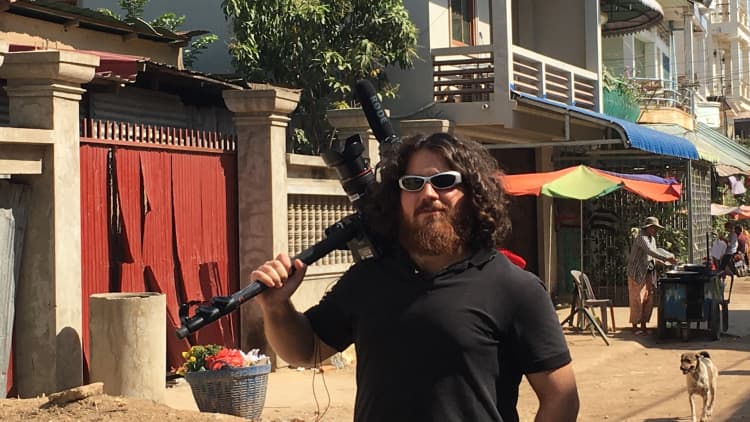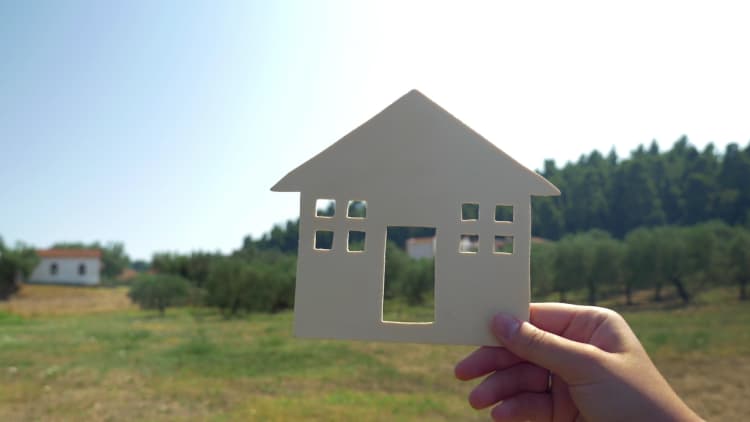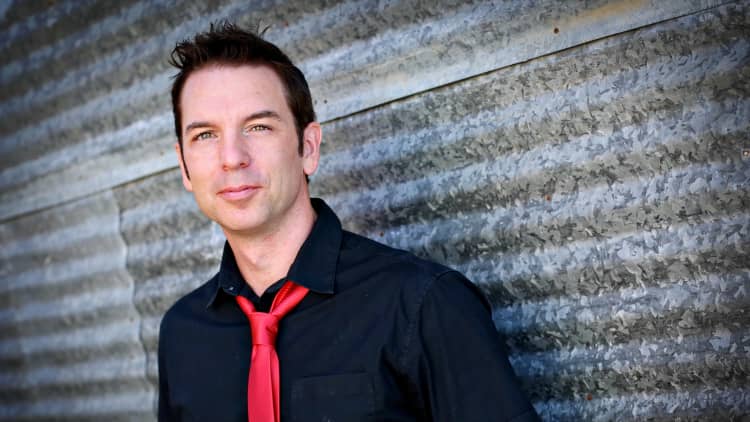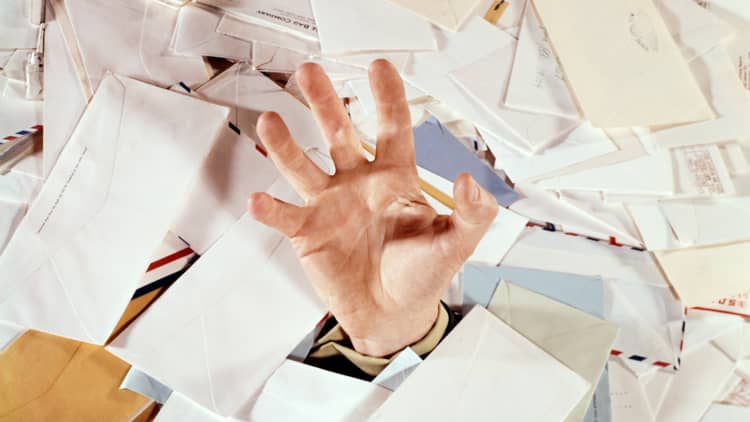In 2008, Cherie and Brian Lowe found themselves deep underwater. The couple owed over $127,000, including student loans, credit cards and car payments.
After several failed attempts at prioritizing paying everything back, Brian came home one day and pitched a vision to Cherie of what their family's lives could look like without the debt. That did it.
The couple decided it was time to make a permanent change and get a handle on their finances. On April 2, 2008, they set out on the first day of a 15-year plan to become debt-free.
Just shy of four years later, on March 28, 2012, the Lowes made their final Sallie Mae payment, way ahead of schedule. They had conquered $127,482.30 in debt and interest. Cherie documented the adventure on her blog, Queen of Free, and in her book, "Slaying the Debt Dragon: How One Family Conquered Their Money Monster and Found an Inspired Happily Ever After."
And the first step the couple took to break free from debt didn't involve paying back a single penny.
Instead, Cherie and Brian worked on building up a sufficient emergency fund, starting with putting $1,000 in the bank. "We didn't pay anything off to begin with," Cherie tells CNBC Make It. "But we saved money up."
The Lowes borrowed this idea from Dave Ramsey, who advises building a $1,000 emergency fund as the first "baby step" toward paying off debt, because something is always bound to go wrong, no matter how careful you are.
"Car blows up. Transmission goes out. You bury a loved one. Grown kids move home again. Life happens, so be ready," Ramsey writes in "The Total Money Makeover." "This is not a surprise."
Building a solid emergency fund first is crucial because it prevents bumps in the road from completely derailing the journey, Ramsey explains.

"I discovered that people would stop their whole Total Money Makeover because of an emergency — they felt guilty that they had to stop debt reducing to survive," he says. "If you use debt after swearing off it, you lose the momentum to keep going."
The $1,000 the Lowes socked away from the start allowed them to deal with anything from car repairs to medical expenses while still chipping away at their debt.
But Ramsey and the Lowes make one thing about this strategy clear: The emergency fund is for true crises only.
"An emergency is something you had no way of knowing was coming, something that has a major impact on you and your family if you don't cover it," Ramsey writes. That means no shoes, no vacations and no college tuition payments come from this pot.

Cherie and Brian learned the importance of this rule the hard way. "We had actually tried three or four years prior to try and pay off debt, and we did not have that safety net in place, so when we got discouraged or when something would happen, we just quit," Cherie says.
Putting together an emergency fund allowed Cherie and Brian to move forward with their debt repayment plan, and it provided financial freedom.
"That first step really gave us a margin to be able to breathe and to know that if something fell apart that we'd be able to take care of it," Cherie says.
Like this story? Like CNBC Make It on Facebook
Don't miss:




